Filter by
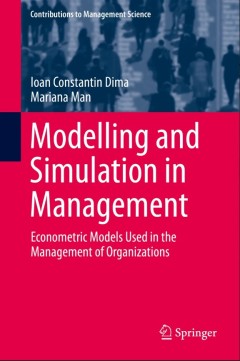
Modelling and Simulation in Management:Econometric Models Used in the Managem…
This book is a comprehensive introduction of the reader into the simulation and modelling techniques and their application in the management of organisations. The book is rooted in the thorough understanding of systems theory applied to organisations and focuses on how this theory can apply to econometric models used in the management of organisations. The econometric models in this book employ…
- Edition
- 1
- ISBN/ISSN
- 978-3-319-16591-2
- Collation
- XXII, 523
- Series Title
- Contributions to Management Science
- Call Number
- -
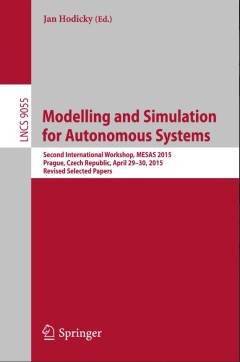
Modelling and Simulation for Autonomous Systems:Second International Workshop…
This book constitutes the thoroughly refereed post-workshop proceedings of the Second International Workshop on Modelling and Simulation for Autonomous Systems, MESAS 2015, held in Prague, Czech Republic, in April 2015. The 18 revised full papers included in the volume were carefully reviewed and selected from 33 submissions. They are organized in the following topical sections: state of the ar…
- Edition
- 1
- ISBN/ISSN
- 978-3-319-22382-7
- Collation
- XII, 241
- Series Title
- Lecture Notes in Computer Science
- Call Number
- -
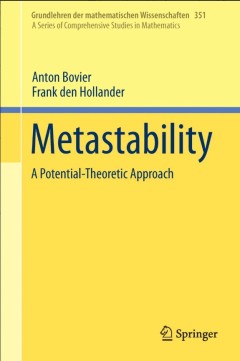
Metastability:A Potential-Theoretic Approach
This monograph provides a concise presentation of a mathematical approach to metastability, a wide-spread phenomenon in the dynamics of non-linear systems - physical, chemical, biological or economic - subject to the action of temporal random forces typically referred to as noise, based on potential theory of reversible Markov processes. The authors shed new light on the metastability pheno…
- Edition
- 1
- ISBN/ISSN
- 0072-7830
- Collation
- XXI, 581
- Series Title
- Grundlehren der mathematischen Wissenschaften
- Call Number
- -
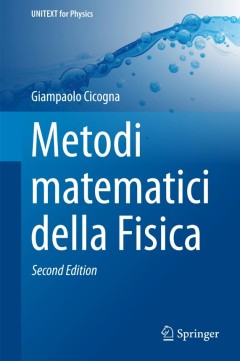
Metodi matematici della Fisica
Questo libro trae la sua origine dagli appunti preparati per le lezioni di Metodi Matematici della Fisica tenute al Dipartimento di Fisica dell'Università di Pisa, e via via sistemati, raffinati e aggiornati nel corso di molti anni di insegnamento. L'intento generale è di fornire una presentazione per quanto possibile semplice e diretta dei metodi matematici basilari e rilevanti per la Fisica…
- Edition
- 1
- ISBN/ISSN
- 978-88-470-5683-1
- Collation
- X, 258
- Series Title
- UNITEXT for Physics
- Call Number
- -
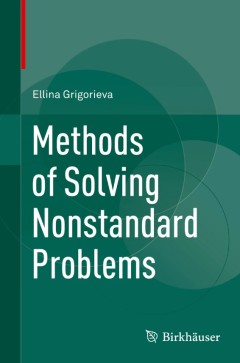
Methods of Solving Nonstandard Problems
This book, written by an accomplished female mathematician, is the second to explore nonstandard mathematical problems – those that are not directly solved by standard mathematical methods but instead rely on insight and the synthesis of a variety of mathematical ideas. It promotes mental activity as well as greater mathematical skills, and is an ideal resource for successful preparation fo…
- Edition
- 1
- ISBN/ISSN
- 978-3-319-19886-6
- Collation
- XXI, 327
- Series Title
- -
- Call Number
- -
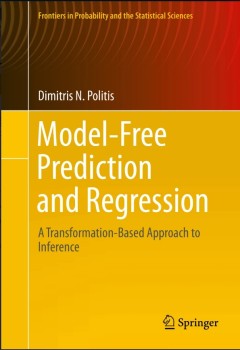
Model-Free Prediction and Regression
The Model-Free Prediction Principle expounded upon in this monograph is based on the simple notion of transforming a complex dataset to one that is easier to work with, e.g., i.i.d. or Gaussian. As such, it restores the emphasis on observable quantities, i.e., current and future data, as opposed to unobservable model parameters and estimates thereof, and yields optimal predictors in diverse set…
- Edition
- 1
- ISBN/ISSN
- 978-3-319-21346-0
- Collation
- XVII, 246
- Series Title
- Frontiers in Probability and the Statistical Sciences
- Call Number
- -
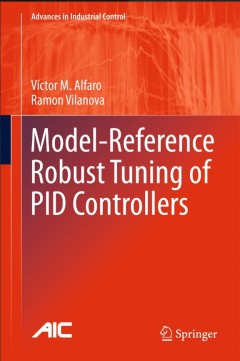
Model-Reference Robust Tuning of PID Controllers
This book presents a unified methodology for the design of PID controllers that encompasses the wide range of different dynamics to be found in industrial processes. This is extended to provide a coherent way of dealing with the tuning of PID controllers. The particular method at the core of the book is the so-called model-reference robust tuning (MoReRT), developed by the authors. MoReRT const…
- Edition
- 1
- ISBN/ISSN
- 978-3-319-28211-4
- Collation
- XIX, 192
- Series Title
- Advances in Industrial Control
- Call Number
- -
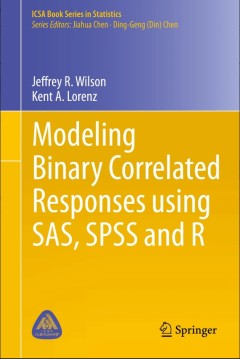
Modeling Binary Correlated Responses using SAS, SPSS and R
Statistical tools to analyze correlated binary data are spread out in the existing literature. This book makes these tools accessible to practitioners in a single volume. Chapters cover recently developed statistical tools and statistical packages that are tailored to analyzing correlated binary data. The authors showcase both traditional and new methods for application to health-related resear…
- Edition
- 1
- ISBN/ISSN
- 978-3-319-23804-3
- Collation
- XXIII, 264
- Series Title
- ICSA Book Series in Statistics
- Call Number
- -
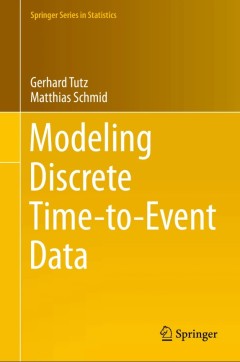
Modeling Discrete Time-to-Event Data
This book focuses on statistical methods for the analysis of discrete failure times. Failure time analysis is one of the most important fields in statistical research, with applications affecting a wide range of disciplines, in particular, demography, econometrics, epidemiology and clinical research. Although there are a large variety of statistical methods for failure time analysis, many techn…
- Edition
- 1
- ISBN/ISSN
- 978-3-319-28156-8
- Collation
- X, 247
- Series Title
- Springer Series in Statistics
- Call Number
- -

Electronic Commerce A Managerial and Social Networks Perspective
Throughout the book, theoretical foundations necessary for understanding Electronic Commerce (EC) are presented, ranging from consumer behavior to the economic theory of competition. Furthermore, this book presents the most current topics relating to EC as described by a diversified team of experts in a variety of fields, including a senior vice president of an e-commerce-related company. The a…
- Edition
- 1
- ISBN/ISSN
- 978-3-319-10091-3
- Collation
- 12 b/w illustrations, 100 illustrations in colour
- Series Title
- -
- Call Number
- -
 Computer Science, Information & General Works
Computer Science, Information & General Works  Philosophy & Psychology
Philosophy & Psychology  Religion
Religion  Social Sciences
Social Sciences  Language
Language  Pure Science
Pure Science  Applied Sciences
Applied Sciences  Art & Recreation
Art & Recreation  Literature
Literature  History & Geography
History & Geography